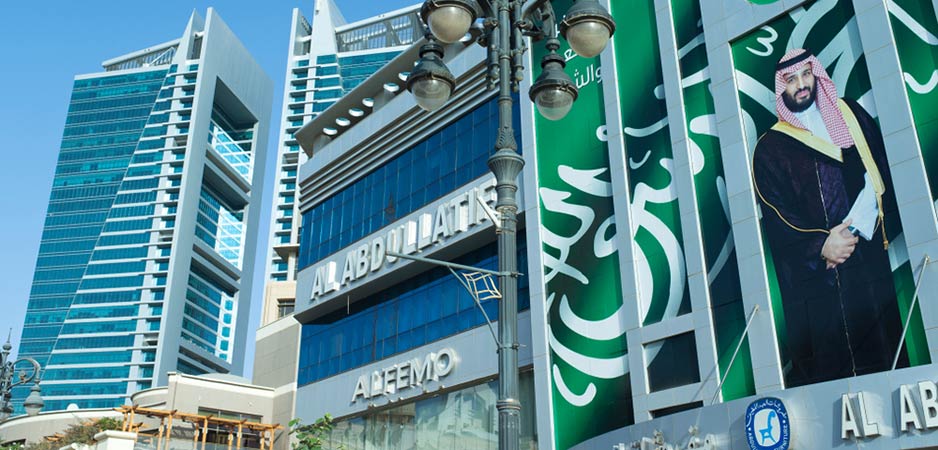It was first reported and initially denied by Saudi authorities. Then it was acknowledged as a “rogue” operation gone wrong. For the past year, every honest observer has clearly understood that Saudi Arabia’s crown prince, Mohammed bin Salman (MBS), ordered and most likely even stage-managed and monitored the carefully scripted and exceptionally macabre murder of journalist Jamal Khashoggi in the Saudi Consulate in Istanbul that took place on October 2, 2018.
In a world that claims to be governed by “the rule of law,” such a brazen act required a commensurate response from the international community. The response came with calls for an investigation and swift justice from various official sources, most energetically from Turkey (the scene of the crime).
A notable exception was US President Donald Trump, for whom, as a matter of principle, the sacrifice of one person (Khashoggi) or tens of thousands (Yemeni civilians) should never constitute an obstacle to the conduct of profitable business with the astute leader of a rich nation. Time is money. Investigations, trials and meting out punishment are all time-consuming activities that delay and may even hinder the everyday business that serves the noble purpose of enriching those who are gifted in the art of the deal. As everyone knows — or should know — the rest of humanity depends for its continued survival and prosperity on the success of their deals.
Last month, on the first anniversary of Khashoggi’s murder, Al Jazeera quoted Bessma Momani, a professor of political science at Canada’s University of Waterloo, who regretted the fact that, a full year after the murder, the nations of the world (though not the United Nations itself) appear to have given MBS a pass on what as great a moral authority as Uber’s CEO, Dara Khosrowshahi, has now called a “mistake.” Certainly a regrettable mistake, comparable — as Khosrowshahi insists — to an Uber self-driving car killing a pedestrian. But, hey, that’s the price of progress.
In a less trivial reflection, Professor Momani detected a geopolitical pattern of far wider impact that might worry us all: “The decision not to take punitive measures against Saudi Arabia for Khashoggi’s killing also reflects a rise of ‘nationalist-populist dictators globally.’”
Here is today’s 3D definition:
Punitive measures:
Actions taken in the form of laws, constraints, penalties, imprisonment, sanctions and fines designed to be applied uniquely to people and institutions with insufficient financial clout (the means of influencing those who have the requisite influence) with a view to effectively preventing the practical application of such measures to their own infractions — a privilege reserved for those who control the flow of significant amounts of money or coveted resources
Contextual Note
Dara Khosrowshahi has now come under fire for his implicit defense of Mohammed bin Salman, whereas he simply wanted to underscore what everyone understands to be the true basis of business ethics as it is applied in Trump’s Washington, in MBS’ Riyadh and Uber’s Silicon Valley. It was once most pithily summed up in Facebook’s historical motto, “Move fast and break things,” before Mark Zuckerberg changed it, having realized that the slogan’s tone of irresponsibility and unaccountability may not be the best advertising for a powerhouse company over which he held dictatorial control.
The Iranian-American Khosrowshahi seem to think nevertheless that the Saudi de facto leader may have gone a bit too far. He explained: “Listen, it’s a serious mistake. We’ve made mistakes too.” In other words, crown princes, just like automated vehicles, are never perfect. The good news is that both can be reprogrammed to perform more efficiently once the data resulting from their mistakes is analyzed and compensated for. With MBS, the question remains open as to who will take responsibility for reprogramming the crown prince. Many have been counting on his father, King Salman bin Abdulaziz al-Saud. Others question the 83-year-old’s programming skills.
Historical Note
The New York Times columnist and best-selling author Thomas Friedman was the first to make it clear that we should all celebrate MBS an innovator intent on having Saudi Arabia join Friedman’s flat world, where even oil-rich royal families can compete with Silicon Valley giants in a spirit of exemplary economic democracy designed to contribute to the prosperity of all. In a nation governed by Bedouin culture that had no interest in progress or competition, where time has always remained practically at a standstill, Mohammed bin Salman has consistently shown his own commitment not only to moving fast, but especially to breaking things.
For the past four years, MBS has masterfully demonstrated his ability to break things in Yemen, where his campaign of destruction has created a major humanitarian disaster. There are even hints now that, after his success at breaking things, he may also begin experimenting with fixing things, though that doesn’t appear to be one of his primary skills. Mohammed bin Salman’s ally in the war on the Yemeni Houthis, the UAE, has taken the lead on the fixing. But after all the damage done to Saudi’s own infrastructure, MBS appears to be ready to play the role of willing apprentice and to sign on to a peaceful outcome to the war he initiated in 2015.
In a world in which profit and efficiency have become the determining criteria for both action (experimentation) and inaction (shunning responsibility), it may be time to rethink the role of ethics in international relations, or even to wonder with it exists as a factor of decision-making. The new, eminently pragmatic ethical orientation everyone seems to rally behind can be reduced to two words: “whatever works.”
Professor Momani sees the triumph of “nationalist-populist dictators globally.” As a royal, Mohammed bin Salman needn’t resort to populism, but what he represents — and especially his ability to avoid accountability — does appear to be the hallmark of a new generation of leaders. Whatever they do will be forgiven in the name of political and especially financial realism.
The case has often been made that George W. Bush’s team — with central figures such as Dick Cheney and Donald Rumsfeld — were guilty of war crimes and crimes against humanity. The following US president, Barack Obama, dismissed the question of accountability with the perfect formulation of a “whatever works” sense of justice: “[W]e must look forward, not backward.” If Bush could not only escape accountability but come to be revered by his “enemies,” the Democrats, then as a dignified elder statesman, why shouldn’t Donald Trump, Rodrigo Duterte, Jair Bolsonaro, MBS and even Boris Johnson adopt Ivan Karamazov’s logical conclusion, as reported by Fyodor Dostoevsky: “If God does not exist, everything is permitted?”
The ultimate irony is, of course, that populist dictators and hyperreal autocrats tend to be those who invoke religion to justify their immunity from ethics. God has selected these providential leaders and ordered them to commit their crimes. And if it works, whatever!
*[In the age of Oscar Wilde and Mark Twain, another American wit, the journalist Ambrose Bierce, produced a series of satirical definitions of commonly used terms, throwing light on their hidden meanings in real discourse. Bierce eventually collected and published them as a book, The Devil’s Dictionary, in 1911. We have shamelessly appropriated his title in the interest of continuing his wholesome pedagogical effort to enlighten generations of readers of the news.]
The views expressed in this article are the author’s own and do not necessarily reflect Fair Observer’s editorial policy.
Support Fair Observer
We rely on your support for our independence, diversity and quality.
For more than 10 years, Fair Observer has been free, fair and independent. No billionaire owns us, no advertisers control us. We are a reader-supported nonprofit. Unlike many other publications, we keep our content free for readers regardless of where they live or whether they can afford to pay. We have no paywalls and no ads.
In the post-truth era of fake news, echo chambers and filter bubbles, we publish a plurality of perspectives from around the world. Anyone can publish with us, but everyone goes through a rigorous editorial process. So, you get fact-checked, well-reasoned content instead of noise.
We publish 2,500+ voices from 90+ countries. We also conduct education and training programs
on subjects ranging from digital media and journalism to writing and critical thinking. This
doesn’t come cheap. Servers, editors, trainers and web developers cost
money.
Please consider supporting us on a regular basis as a recurring donor or a
sustaining member.
Will you support FO’s journalism?
We rely on your support for our independence, diversity and quality.






